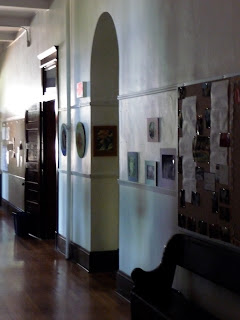Every Friday in my Spanish classes, I select a different song to listen to and sing. The first time, we listen, and students try to fill in the blanks of the lyrics (I omit some words they would easily hear). Then we talk about what it means and translate some of the lyrics. The second time, we sing along with the music. I pick songs from different genres, and try to keep it interesting.
Last week, though, I did something different and showed this video. The first go around, we simply watched the video. I witnessed my students become quieter than I have ever seen them. They were mesmerized by the beauty of the people and places captured by the lens of the camera in Calle 13’s video.
I have traveled to several Latin American countries, studied Spanish and Latin American studies for years, and been truly intrigued and inspired by the diversity of culture, geography, and languages I have seen. However, none of those experiences prepared me for the way this song captures the heart of a people. I have learned, and taught my students, not to make generalizations about multiple countries, tribes, and histories. But this video does an amazing job of bringing to light all of those differences, while still celebrating the common thread of Latin America that may not even be possible to articulate. The true essence of diversity, I guess.
The lyrics are poetic, too. In a world rampant with consumerism, greed, and colonization of people and spaces, the words say,
“Tú no puedes comprar al viento.
Tú no puedes comprar al sol.
Tú no puedes comprar la lluvia.
Tú no puedes comprar el calor.
Tú no puedes comprar las nubes.
Tú no puedes comprar los colores.
Tú no puedes comprar mi alegría.
Tú no puedes comprar mis dolores.”
“You can’t buy the wind.
You can’t buy the sun.
You can’t buy the rain.
You can’t buy the heat.
You can’t buy the clouds.
You can’t buy the colors.
You can’t buy my happiness.
You can’t buy my pains.”
So much of Central and South America has been exploited physically, politically, economically, and environmentally for centuries. But this song makes a claim for an essential spirit of a people who continue to struggle for visibility and equality, and a place that can’t be bought.
Maybe my view is too simplistic, but I felt humbled and appreciative to see this video, and know that some musicians are still fighting a good fight for social justice in the world. Critics are already saying it should win song/video of the year at the Latin Grammys in November. Hope you enjoy it!
(Hannah is Reed child #3. She teaches at Olney Friends School, in rural Ohio. Click here to get a peek at her arrival there, just over a year ago).

Wow. That was a two kleenex post. Maybe it's this cold I have, but I found the video and the post to be powerful and moving:)
ReplyDeletea wonderful post
ReplyDeleteloved the music and the hope
Beautiful,Hannah. I'm so grateful someone like you is working with the young people in our world. Thank you.
ReplyDeleteThanks for this great post, the song is like a mantra!
ReplyDelete